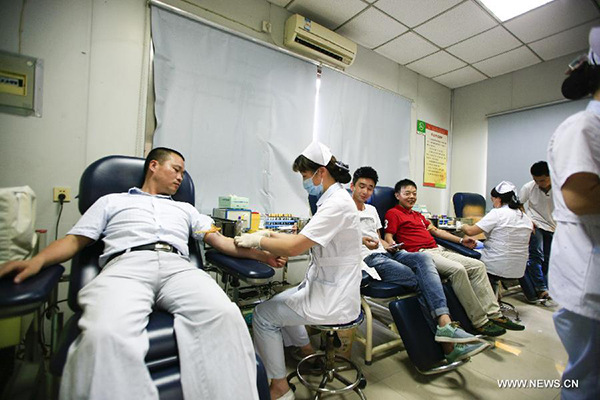
Local residents donate blood at a blood bank in Kunshan City, east China's Jiangsu province, Aug 2, 2014. (Photo/Xinhua)
Some so-called blood brokers in Nanning, capital of South China's Guangxi Zhuang autonomous region, have reportedly established an underground blood exchange network. Beijing News commented on Wednesday:
It is no secret that blood transfusions play a vital role in modern healthcare, which explains why the medical authorities have imposed restrictions on the use and storage of blood donations.
As of now, all the blood used for transfusions should come from official blood centers. However, this to some extent limits the blood supply, because blood can only be stored for a short time and thus cannot be stored in large quantities.
To reduce the possibility of a severe blood shortage, many Chinese hospitals encourage a patient's relatives to donate their blood if a transfusion is needed.
This has worked well in increasing the number of successful transfusions, but its limitations are still worth noting. Some patients need more blood than their relatives can provide, and some have no relatives who can or will donate blood.
The demand of these patients has been exploited by some illegal "blood brokers" that match patients in need of blood with potential donors. They use social network tools to run their business, and make patients pay a high price for their service.
Such unlawful activities should be banned. But information-sharing online platforms, which allow volunteers to donate their blood to those who are badly in need, could be a feasible alternative to meet the demand.
However, fundamentally, the key to alleviating the occasional blood shortages and putting an end to illegal exchanges still lies in increasing the willingness of people to donate blood.


















































